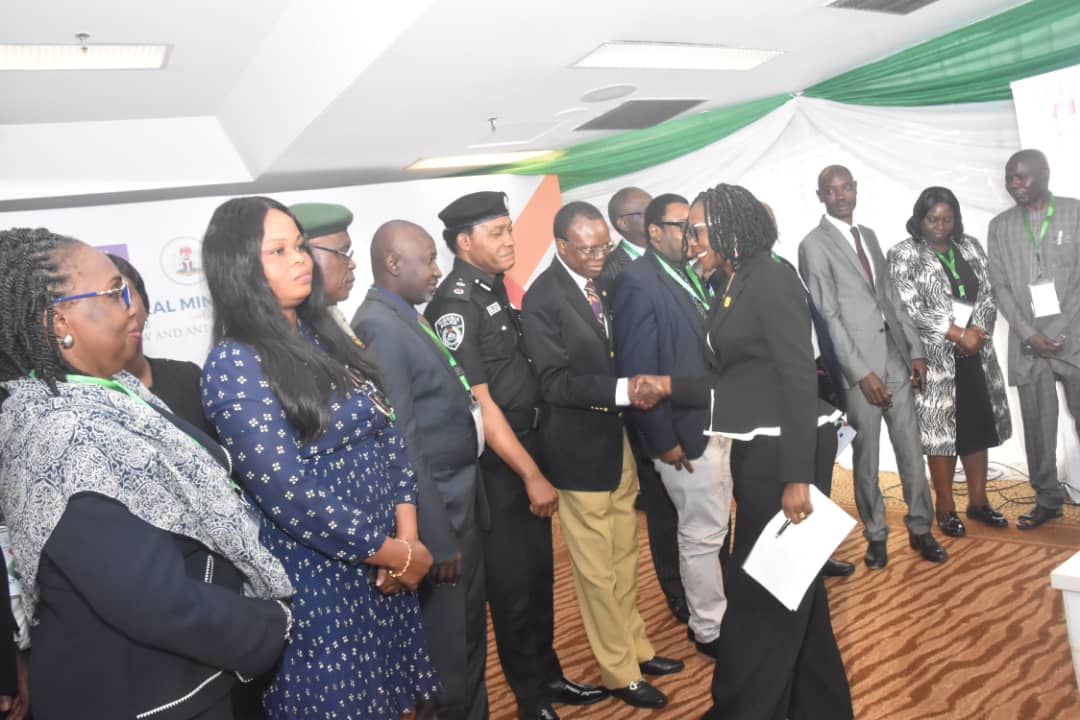NATIONAL NEWS
Justice Sector Leaders Unify Implementation Of Criminal Justice Act 2015

Abuja, Nigeria – The Attorney-General of the Federation and Minister of Justice, Lateef Fagbemi, SAN, has led key stakeholders in a collaborative effort to ensure uniform implementation of the Administration of Criminal Justice Act (ACJA) 2015.
The initiative, which culminated in the adoption of the National Minimum Standards Document 2024, was announced this weekend at a stakeholders’ meeting in Abuja.
The Federal Ministry of Justice organised the event with support from the International IDEA’s EU-funded Rule of Law and Anti-Corruption (RoLAC-II) Programme.
Speakers at the meeting emphasised that the National Minimum Standards will significantly improve the effectiveness of the ACJA, 2015.
This document establishes a framework for all stakeholders, including courts, law enforcement agencies, and correctional services, to adhere to standardised procedures in criminal justice proceedings.
The Standards Cover the Following Key Areas:
- Pre-trial case management.
Witness support - Case Filtering and Timelines
Bail - Remand protocol
- Trial case management
- Post-trial procedures
The document also encourages the use of plea bargains and advocates for the prohibition of trial delays due to interlocutory applications or appeals.
The RoLAC-II Programme, which aims to improve the performance, quality, and oversight of the criminal justice system in Nigeria, will establish a national scheme for assessing and evaluating the implementation of the ACJA.
This will involve creating a national scoresheet to monitor the performance of each state, fostering healthy competition and attracting more resources to the criminal justice sector.
The Attorney-General of the Federation, represented by the Solicitor General of the Federation and Permanent Secretary of the Federal Ministry of Justice, Mrs. Beatrice Jessy-Agba, highlighted the Act’s importance in ensuring efficient management of criminal justice institutions, speedy dispensation of justice, and the protection of the rights and interests of all involved.
She emphasised that the National Minimum Standards will strengthen stakeholder collaboration and ensure that criminal justice procedures are applied consistently across the country.
This, in turn, will reduce “forum shopping,” in which offenders exploit loopholes in various state laws, and eventually contribute to socioeconomic development.
The initiative has received strong support from a number of organisations, including the Nigerian Bar Association (NBA), the Nigerian Police, the Independent Corrupt Practices and Other Related Offences Commission (ICPC), the Economic and Financial Crimes Commission (EFCC), and the Nigerian Correctional Service.
This collaborative effort demonstrates a commitment to creating a more equitable, efficient, and accountable criminal justice system in Nigeria.
RoLAC has pledged to continue supporting the process by ensuring that the National Minimum Standards are translated into multiple languages to increase accessibility.
Nigeria makes a significant step towards becoming a more just and equitable society by implementing these standards.
-
CRIME3 years ago
PSC Dismisses DCP Abba Kyari, To Be Prosecuted Over Alleged $1.1m Fraud
-
FEATURED3 years ago
2022 Will Brighten Possibility Of Osinbajo Presidency, Says TPP
-
FEATURED2 years ago
Buhari’s Ministers, CEOs Should Be Held Accountable Along With Emefiele, Says Timi Frank
-
BUSINESS & ECONOMY2 years ago
Oyedemi Reigns As 2023’s Real Estate Humanitarian Of The Year
-
SPORTS1 year ago
BREAKING: Jürgen Klopp Quits Liverpool As Manager At End Of Season
-
SPORTS2 years ago
Could Liverpool Afford Kylian Mbappe For €200 million? Wages, Transfer Fee
-
ENTERTAINMENT2 years ago
Veteran Nigerian Musician, Basil Akalonu Dies At 72
-
FEATURED2 years ago
Tribunal Judgement: Peter Obi Warns Of Vanishing Electoral Jurisprudence, Heads To Supreme Court
-
BUSINESS & ECONOMY2 years ago
Oyedemi Bags ‘Next Bulls Award’ As BusinessDay Celebrates Top 25 CEOs/ Business Leaders
-
FEATURED3 years ago
2023 Presidency: South East PDP Aspirants Unite, Demand Party Ticket For Zone


































